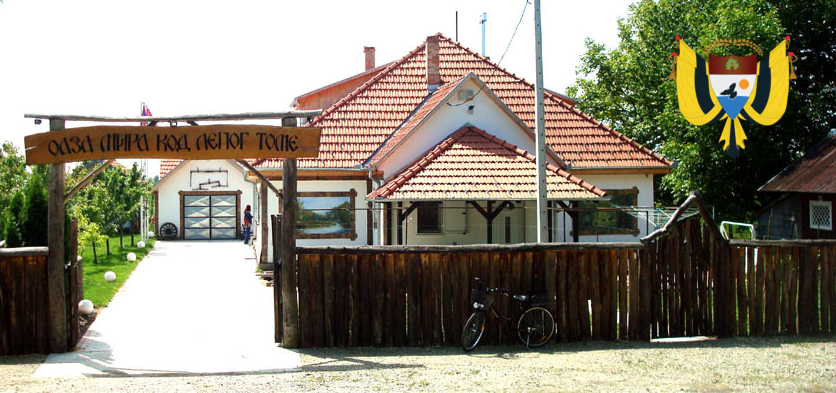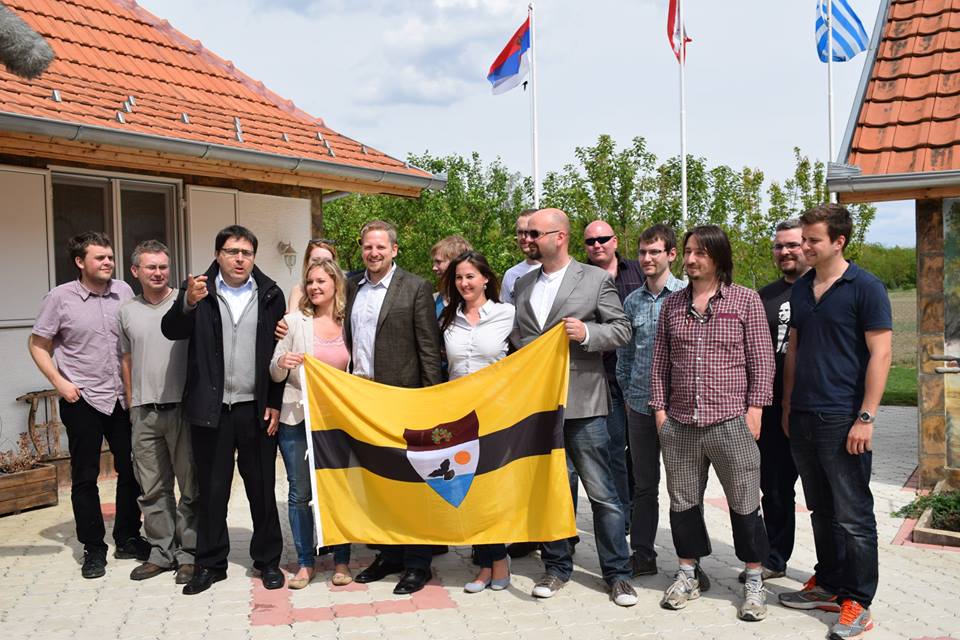On May 3rd, Liberland’s leadership was allowed to open an “honorary consulate” in Serbia, currently the seat of its government-in-exile. Welcome to the youngest quasi-state in Europe.
Taxes are nil. Trade virtually unhindered. No official currency. Regulations kept to the very minimum. The powers of the state limited to bare essentials and private property sacrosanct.
To some, these may sound like the contours of a libertarian fantasy; for others, they are the founding principles of the youngest European country, The Free Republic of Liberland.
It started as a jest, designed to go viral.
Czech libertarian activist Vit Jedlicka, a member of the eurosceptic Free Citizens’ Party, spent years campaigning in his homeland for lower taxes and a smaller government. But when the 31-year old economist’s efforts met with little success, he decided to go off the grid.
On 13 April, Jedlicka and his friends travelled to Gornja Siga, a pocket of land along the Danube river, raised a flag, and declared the birth of Liberland, a new micro-nation whose motto is “Live and Let Live”.
Sound preposterous? It might well be. But the uninhabited piece of land between Serbia and Croatia, on which Jedlicka’s group have set their sights, has a tricky aspect.
With Serbia tracing the border along the Danube, and Croatia claiming the border along thebcadastral municipalities of the two countries, Liberland’s new soil is effectively claimed by neither side.
According to some legal sources, sovereignty over such a terra nullius (“land belonging to no one”) may, in theory, be acquired by occupation. Jedlicka’s team did their research – of all the bits of terra nullius that were up for grabs, the 7 square km patch of land in Gornja Siga seemed the best place on which to fly Liberland’s flag.

Head of (a virtual) State
Things escalated quickly: the curious state-building endeavor of this handful of enthusiasts has caught the eye of media around the globe.
In the past two weeks, “president” Jedlicka has given over 50 interviews to major newscasts. In this time, Liberland’s interim leaders have been in contact with potential investors, libertarian think-tanks and individual donors.
The idea has also attracted a cult following online, with social media and the libertarian blogosphere soaring with praise to the new micro-nation, the number of citizenship applications from around the world reached 300,000, of which 20,000 are Egyptians, 65,000 are Turks and many thousands are from Serbia, Croatia, and elsewhere the region.
Swamped with emails, phone calls and online requests in numbers exceeding their wildest expectations, Liberland’s “immigration office” might be the only such department in the Balkans to face a unique, if virtual, challenge: positive net migration.
Despite the online sensation, it didn’t take long for the first bumps on the road to real-life statehood to appear. As “president” Jedlicka announced, 1 May was to mark Liberland’s founding holiday, on which the first 100 settlers to reach the shore by boat would be given honorary citizenship.
However, the plans went awry. Determined to prevent illegal crossing of national borders, Serbian and Croatian border patrols have stopped would-be Liberlandiands from entering the area. The venue had to be moved to a nearby restaurant on the Serbian side of the border, with some 30 attendees getting their documents over a glass of beer.
Jedlicka’s team seems determined to strike a deal of coexistence with the Croatian and Serbian governments, however.
In his first diplomatic mission as head of (a virtual) state, Jedlicka tried to meet with Croatian president Kolinda Grabar-Kitarovic, but was told she was abroad. According to sources on the ground, while both countries have officially dismissed the micro-nation as a joke, the Serbians have shown more benevolence than Croatians.

Honorary consulate
On 3 May, Liberland’s leadership was allowed to open an “honorary consulate” in Serbia, currently the seat of its government-in-exile, while the Croatian border control has been heavily patrolling the Danube and blocking the dusty road leading to the area in question.
Although there has yet been no mark of Jedlicka’s success in persuading the Croat authorities to let him access Liberland’s soil, winning the hearts of locals is likely to go more smoothly, with bar owners wide open to the idea of new, independence-seeking customers.
While legal experts and commentators have predictably poured cold water on the micro-nation’s bid for statehood, the unexpected support for the idea of Liberland left some wondering if the starry-eyed attempt does stand a chance.
The current practice of state recognition has been described as combining two approaches to statehood: the constitutive and the declarative theories.
According to the former, Liberland could achieve personality in international law only if it is recognised by other sovereign states.
The latter, declarative theory, posits four criteria which Liberland would have to meet in order to be considered a proper country: a government; a defined territory, a permanent population; and the ability to enter into relations with other states.
As things stand, Jedlicka’s team is opting for this second route. Jedlicka’s masterful PR stunt, portraying the Liberland project as peaceful and essentially harmless, certainly helps his prospects.
Even if Liberland becomes the first micro-nation to actually achieve some sort of recognition (dozens of failed attempts include “The Principality of Sealand” and “The Republic of Minerva”), the challenges of nation-building extend beyond his initial steps.
There are roads, bridges and sewage systems to be built, residential homes to be constructed, and law enforcement forces to be assembled – feats difficult to achieve for a government reliant on voluntary tax revenue.
The draft constitution’s guarantee of unrestricted border-crossing seems hard to reconcile with basic security precautions. On top of that, future Liberlandians might want to consider the nasty dangers looming in the corners of “tax havens” – fraud, money laundering, and terrorism – and to carefully design preventive mechanisms.
The will is manifestly there. Let’s wait and see if there is a way.
This article was originally published on EUObserver. They’ve generously given us permission to republish it here.
Cover photo credit: Liberland’s Facebook page, which had 137k likes at the time of publication.

